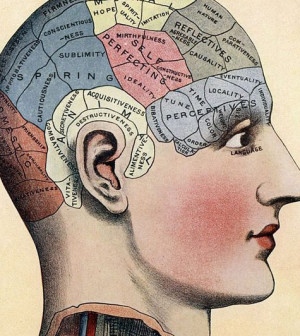- 8 Ways to Increase Dopamine Naturally
- 7 Best Breads for Maintaining Stable Blood Sugar
- Gelatin vs. Collagen: Which is Best for Skin, Nails, and Joints?
- The Long-Term Effects of Daily Turmeric Supplements on Liver Health
- Could Your Grocery Store Meat Be Causing Recurring UTIs?
- Are You Making This Expensive Thermostat Error This Winter?
- Recognizing the Signs of Hypothyroidism
- 10 Strategies to Overcome Insomnia
- Could Artificial Sweeteners Be Aging the Brain Faster?
- Techniques for Soothing Your Nervous System
Iron Deficiency May Raise Stroke Risk


Low iron levels can raise your risk of stroke by making your blood more sticky, a new study indicates.
Investigators looked at data from nearly 500 people with a rare hereditary disease that causes them to have enlarged blood vessels in the lungs. Typically, blood vessels in the lungs don’t allow clots to enter the arteries. But in these patients, clots can escape the lungs, travel to the brain and cause a stroke.
Those who had an iron deficiency had stickier platelets — which are small blood cells that trigger clotting when they stick together — and were more likely to suffer a stroke, according to the researchers at Imperial College London in the U.K.
Even those with moderately low iron levels were about twice as likely to suffer a stroke as those with iron levels in the middle of the normal range, according to the study published Feb. 19 in the journal PLoS One.
The researchers noted that many people have other types of conditions that let blood clots bypass the lung’s filtering system, and they added that their findings could eventually help with stroke prevention.
Iron deficiency affects about 2 billion people worldwide, and recent research has shown that it may be a risk factor for stroke, but how iron deficiency could boost stroke risk was unknown.
“Since platelets in the blood stick together more if you are short of iron, we think this may explain why being short of iron can lead to strokes, though much more research will be needed to prove this link,” Dr. Claire Shovlin, from the National Heart and Lung Institute at Imperial College London, said in a college news release.
“The next step is to test whether we can reduce high-risk patients’ chances of having a stroke by treating their iron deficiency. We will be able to look at whether their platelets become less sticky,” Shovlin said.
“There are many additional steps from a clot blocking a blood vessel to the final stroke developing, so it is still unclear just how important sticky platelets are to the overall process,” she added. “We would certainly encourage more studies to investigate this link.”
More information
The U.S. National Institute of Neurological Disorders and Stroke has more about stroke.
Source: HealthDay
Copyright © 2026 HealthDay. All rights reserved.










